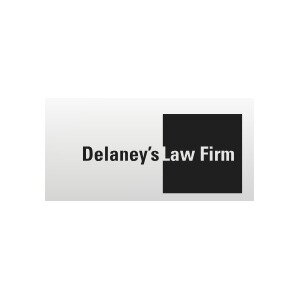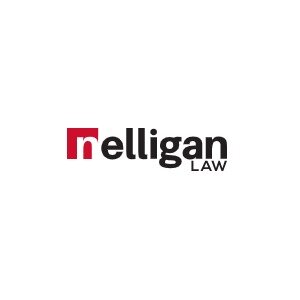Best Domestic Violence Lawyers in Ottawa
Share your needs with us, get contacted by law firms.
Free. Takes 2 min.
Free Guide to Hiring a Family Lawyer
List of the best lawyers in Ottawa, Canada
About Domestic Violence Law in Ottawa, Canada
Domestic violence in Ottawa, Canada is a serious and criminal offence that encompasses the abuses by one person over the other in a domestic setting such as in a marriage or cohabitation. This could range from physical, sexual, emotional, economic abuse and/or intimidation, harassment, stalking, or damage to property. Ottawa's laws regarding this issue provide robust protection and sanctions for the offenders.
Why You May Need a Lawyer
If you are a victim of domestic violence in Ottawa, you will likely need a lawyer to navigate the complexities of the legal system and safeguard your rights. A lawyer can provide you with adequate legal advice if you are seeking a divorce, legal separation, child custody, or to secure protection and restraining orders against the abuser. Lawyers can also guide victims through the process of reporting the crime and represent them in court proceedings against the abuser.
Local Laws Overview
In Ottawa, domestic violence is addressed under the Criminal Code of Canada. The law considers it to be a criminal offence, whether it's physical or sexual abuse, threats to kill or cause bodily harm, harassment/stalking, or confinement. The law also imposes heavier penalties for violations of trust, such as that within family and intimate relationships. In addition, the Ontario Family Law Act provides legal remedies such as restraining orders for victims of domestic violence.
Frequently Asked Questions
What constitutes domestic violence in Ottawa?
Domestic violence in Ottawa is categorized as any form of abuse, whether physically, emotionally, sexually, or psychologically inflicted by one individual upon another in a domestic setting.
What is the possible legal action one can take against an abuser?
The victim can report the abuse to the police, who can then lay charges on the abuser. The victim can also seek a protection order, a peace bond, or other restraining orders against the abuser.
What can a lawyer do for a victim of domestic violence?
A lawyer can provide advice regarding legal rights and options, represent the victim in court proceedings, and help obtain a restraining or protection order against an abuser.
Are domestic violence laws in Ottawa applicable only to married couples?
No, domestic violence laws apply to all forms of domestic relationships, including common-law partners, same-sex partners, and people who are dating.
What about children who are witnesses to domestic violence? Can a protective order include them?
Yes, children who are exposed to domestic violence are often considered by the court as victims themselves. Protective orders can be initiated to encompass them too.
Additional Resources
For legal advice and support, you can contact organizations like the Ottawa Coalition to End Violence Against Women (OCTEVAW), Crime Victim Assistance Program, and the Ottawa Legal Information Centre. For emergency circumstances, it is recommended to reach out to your local law enforcement agency.
Next Steps
If you're a victim of domestic violence, it's crucial to secure your safety first. Once you safeguard yourself and any children involved, report the violence to law enforcement. Then, reach out to a dedicated lawyer to discuss your legal options. Proactive planning can go a long way in protecting your rights and ensuring you navigate your legal journey effectively.
Lawzana helps you find the best lawyers and law firms in Ottawa through a curated and pre-screened list of qualified legal professionals. Our platform offers rankings and detailed profiles of attorneys and law firms, allowing you to compare based on practice areas, including Domestic Violence, experience, and client feedback.
Each profile includes a description of the firm's areas of practice, client reviews, team members and partners, year of establishment, spoken languages, office locations, contact information, social media presence, and any published articles or resources. Most firms on our platform speak English and are experienced in both local and international legal matters.
Get a quote from top-rated law firms in Ottawa, Canada — quickly, securely, and without unnecessary hassle.
Disclaimer:
The information provided on this page is for general informational purposes only and does not constitute legal advice. While we strive to ensure the accuracy and relevance of the content, legal information may change over time, and interpretations of the law can vary. You should always consult with a qualified legal professional for advice specific to your situation.
We disclaim all liability for actions taken or not taken based on the content of this page. If you believe any information is incorrect or outdated, please contact us, and we will review and update it where appropriate.









